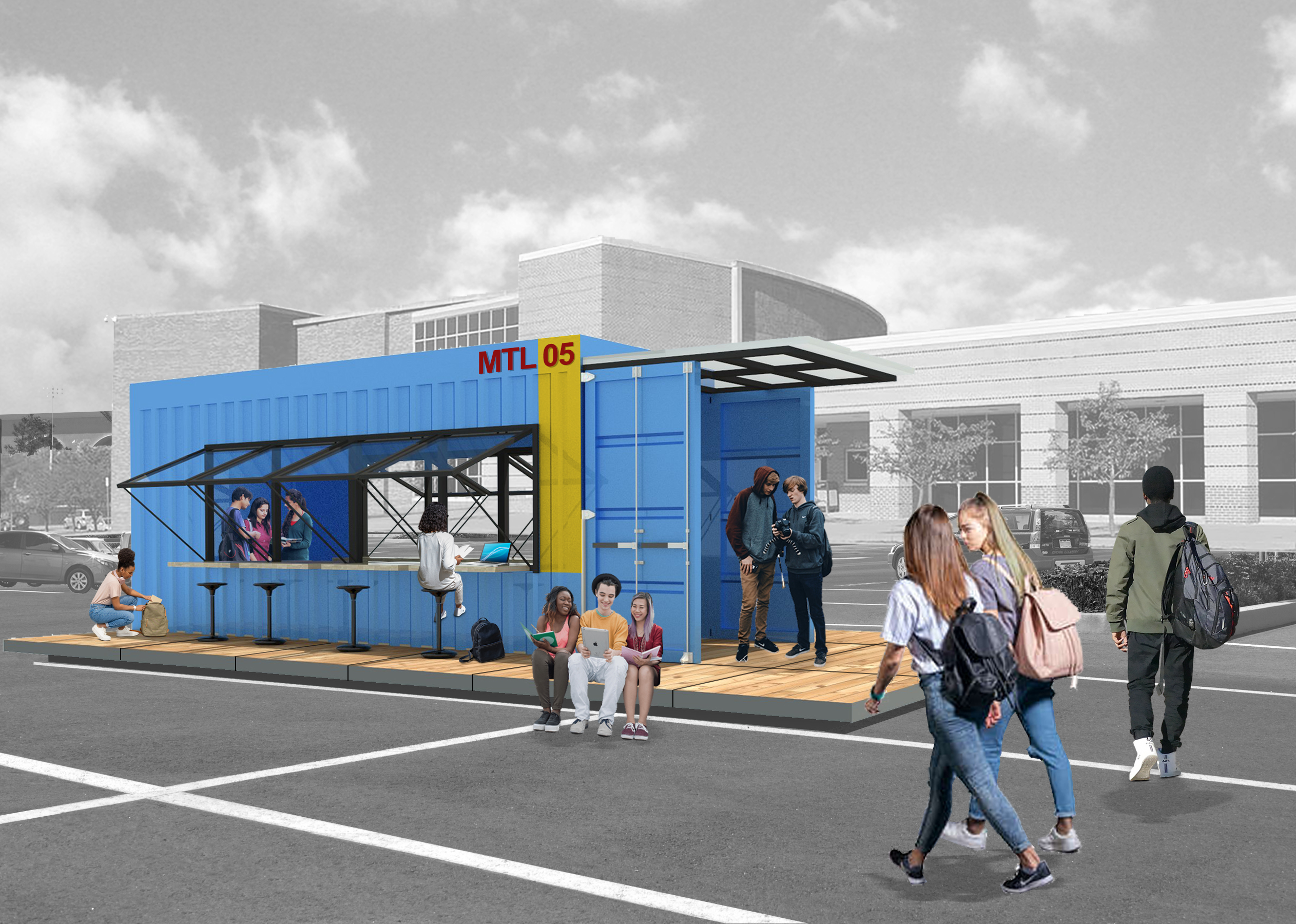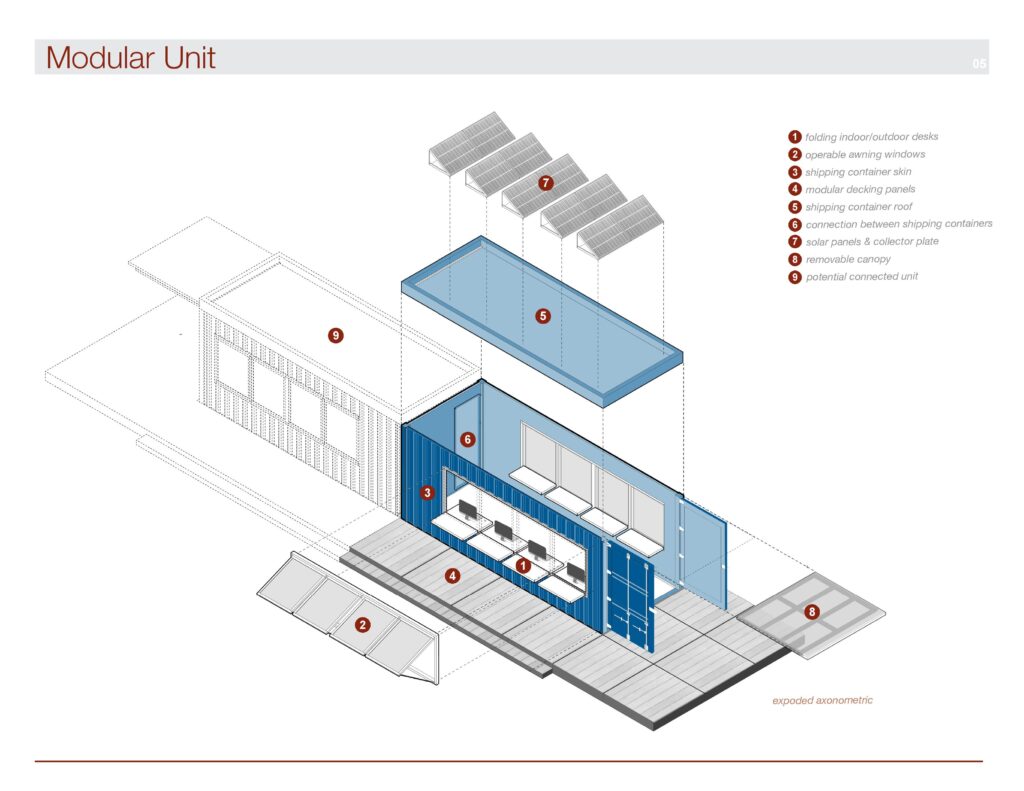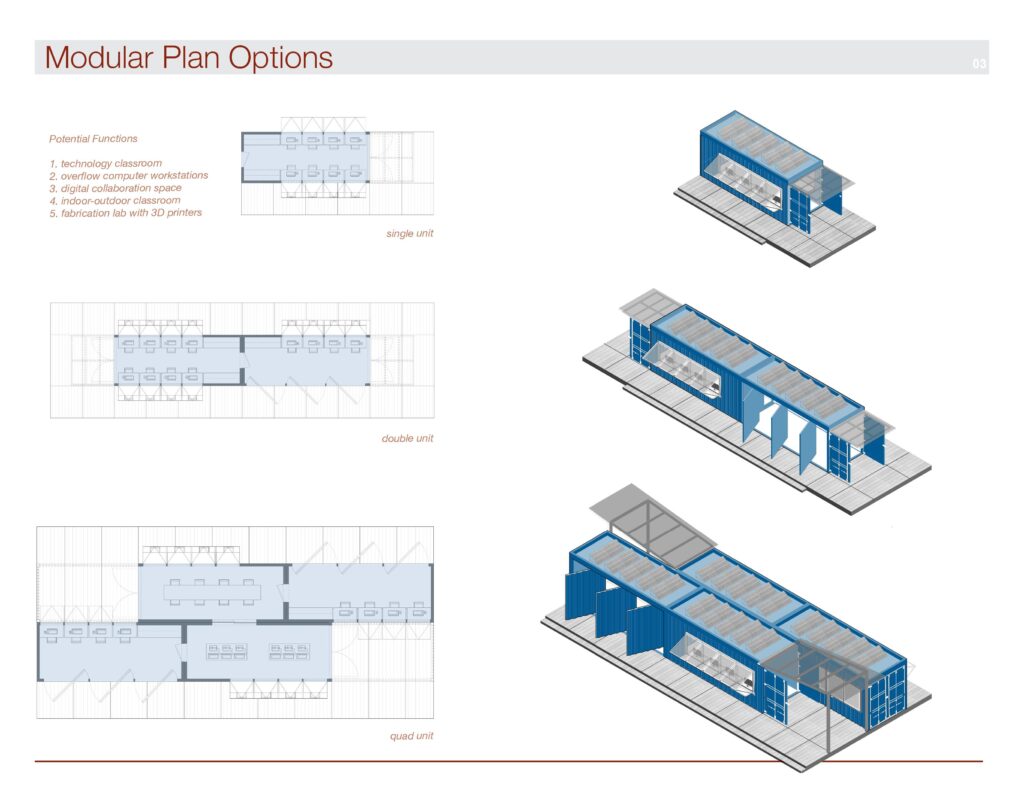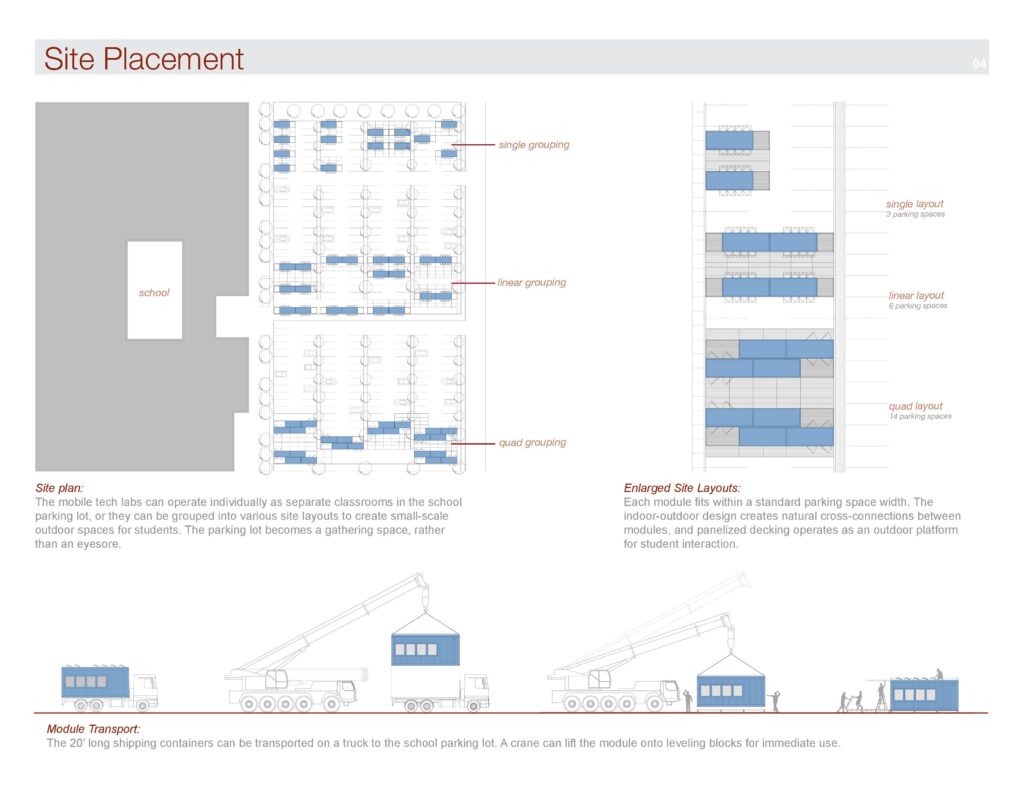
KUBE Architecture‘s prototype for a portable off-grid classroom was developed to supplement D.C. public schools with a “plug-in” space for technology and computer classes. This portable facility would enrich the existing STEAM curriculum and serve as a teaching classroom for students to learn firsthand about sustainability and solar energy.

Composed of one or more shipping containers that offer flexibility of use on the interior, the classroom can be combined into various configurations, as needed.
The base unit is 8-feet wide by 20-feet long and could be used as a technology classroom, fabrication lab, breakout computer workstation, or a digital collaboration space. Modules can be fabricated off-site and shipped on a truck to be installed at the school or stored off-site.

Containers will be pre-wired with computer cable and electrical wiring, and conduit will be included in walls and ceilings for additional wiring. Because each one fits within a standard parking space, the mobile units can be easily situated in the school parking lot.
As they grow into multiple units, decking modules can be arranged to create shared outdoor spaces. In this way, the parking lot, often an eyesore, can serve as an extension of the school.

Electricity will be supplied by solar power and stored in a flat-plate collector. The indoor-outdoor design provides each classroom with fresh air and a connection to the outdoors, and a compact HVAC unit will be pre-installed for winter and summer weather. Rain barrels will collect water from the roof for use in the school’s garden.
Content and images courtesy of KUBE Architecture. Some content has been edited for style or clarity.
